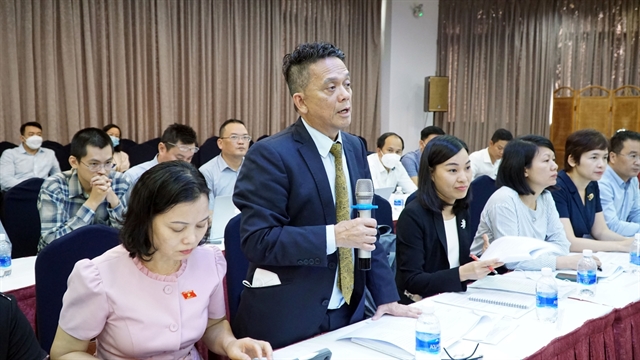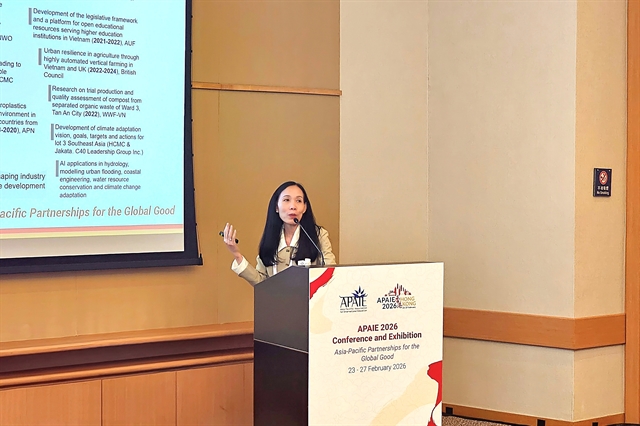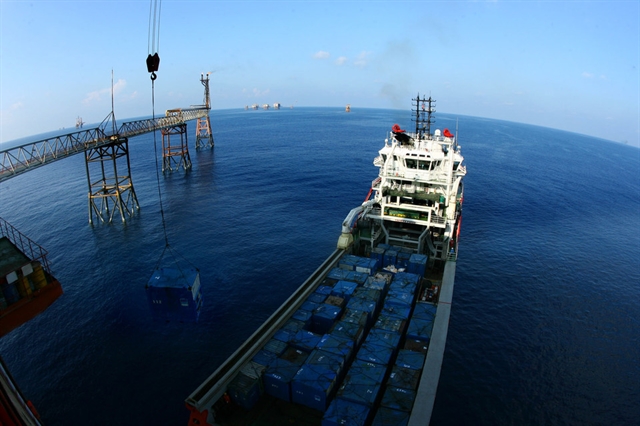 Economy
Economy

 |
| Petroleum operations at sea are not only related to the economy but also national defence and security. — Photo courtesy of PetroVietnam |
HÀ NỘI — While the draft amendment to the petroleum law has been well-received by the industry, businesses are calling for solutions to several bottlenecks in the document to improve the law's feasibility and industry operations.
Among these concerns is the regulation of the language of the contract.
If the chosen contractor is Vietnamese, then the contract will be written in this language, as per Clause 1, Article 34 of the draft amendment,
This also means that in the case of a foreign contractor, the contract will be available in a foreign language.
However, this could be a barrier in the case when there are multiple stakeholders or when changes need to be made to the document.
Nguyễn Minh, head of the legal and trade department of Eni Vietnam, said that foreign investors wanted official contracts to be available in two languages.
As there would be only one language in the official contract, its translated version would not have the parties' signatures, which raised concerns for businesses.
According to Vương Minh Đức of ExxonMobil Vietnam and Đỗ Ngọc Thanh of Japan Vietnam Petroleum Company most of the petroleum industry operation is conducted in English.
They added that a contract available in English upon signing would be a crucial point in attracting foreign investments.
In reality, the petroleum industry in Việt Nam currently uses both English and Vietnamese in their contracts.
Therefore, industry insiders consider the change in the draft amendment unnecessary and can become a hindrance in terms of policies and frameworks.
The suggestion is that the signing contract should be in a common foreign language, usually English, regardless of the contractor's nationality.
 |
| Nguyễn Minh from Eni Vietnam speaks at the seminar discussing the draft amendment to the petroleum law, hosted by the National Assembly Committee on Economy and the Ministry of Industry and Trade in August 2022. — Photo courtesy of PetroVietnam |
In the case of PetroVietnam and its subsidiaries, conflicting processes stated in the petroleum law and the state budget law in business transfers are being called for revision.
As petroleum has different characteristics from other commodities, entrepreneurs say that it is not feasible or fitting to propose competitive sale offers based on an independent assessment of the property's starting price.
The reasons presented are that no agency can value this asset and that hiring value appraisers and organising competitive sale offers could lead to national defence and security risks.
Regarding the use and management of the state budget in petroleum-related operations, the draft says that the approval decision is fully assigned to PetroVietnam's Board of Members in Article 63; while in Article 66, the Commission for the Management of State Capital at Enterprises (CMSC) only sends reports on PetroVietnam's capital use to the Ministry of Industry and Trade for assessment.
The concern is that there are no specific procedures or documents for PetroVietnam's board to make approvals in case of production-sharing contracts or for the CMSC to comment on the capital use of the company in its projects and operations.
Furthermore, after receiving the agreement from the state agencies in charge of petroleum and the CMSC, PetroVietnam will also need to follow its approval procedures, which leads to prolonged and overlapping processes.
President of Việt Nam Petroleum Association Dr Nguyễn Quốc Thập said that he highly commended the draft amendment to the petroleum law but also hoped that the current bottlenecks would be addressed, responding to the expectations of the Party, state, society and businesses. — VNS




